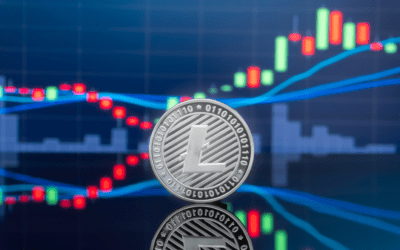Contents:

For eg; https://forexanalytics.info/ doesn’t want its currency to be stronger, which would make their labour market as well as exports expensive. Devaluation is the reduction of the official value of a currency in relation to other currencies. Contrary to the South Sea Company in England, Law's company was a serious commercial enterprise.

- The prolonged study of the effects of devaluation has produced results that are theoretically indeterminate and empirically unconfirmed.
- The second stage in Law's experiment began in 1717, with the establishment of a trading company called the Compagnie d'Occident, for the purpose of developing the French colony of Louisiana.
- In effect, it cost less money for those using U.S. dollars to purchase Chinese exports.
- There have been threats of competitive devaluations among the region's exporting economies.
- The cycle between these two states can make it difficult for people with BPD to maintain relationships with others.
The exchange rate is the value of one currency when compared to another. As one country becomes more competitive by resorting to devaluation, the other country becomes less competitive. As a result, competitive devaluation may arise wherein each country races to reduce the value of its currency, leading to instability. There may also be significant downsides to devaluing a currency.
More explanations about International Economics
The use of currency and devaluation could negatively impact, the value of a country’s export markets, which in the long run makes them more competitive on a worldwide scale. At the same time, developing countries in particular are periodically faced with a currency crisis in which they may need to consider devaluation. This can occur when chronic trade deficits, government budget deficits, or other internal weaknesses cause slack demand for a nation's currency, as was the case during the Asian financial crisis of the late 1990s. Although a variety of circumstances fomented this crisis, one of the most profound was a sell-off in the FX markets which led to sharp depreciations in several Asian currencies. It helps boost exports by making goods more competitive globally, reducing the trade deficit and debt burden. The country’s monetary authority officially makes this adjustment, and it is different from currency depreciation.
- If the government mishandles the devaluation of its currency, it could end up with hyperinflation, i.e., an extremely high inflation rate.
- Exports are those products or services that are made in one country but purchased and consumed in another country.
- Devaluation can bring about growth in the costs of services and products over time.
- Currency devaluation is a deliberate downward adjustment of the value of a country’s currency against another currency.
Most often, quotations of securities of https://forexhistory.info/ers of raw materials , agricultural products will grow. If in 1992 the British currency was overvalued and its rate could not be supported by either domestic production or the reserves of the Bank of England, the situation in Switzerland in 2015 turned out to be the opposite. Now no country could escape the need to trade with each other or establish customs barriers. Capital outflow in case of instability in the country, imposition of international sanctions on the country.
To Bring Down Sovereign Debt
The central bank devalued the Egyptian pound in March 2016 by 14% compared to the U.S. dollar to mitigate the underground market activity. Currency Devaluation can be stopped or avoided with the help of various organizations at the international level. This monetary policy tool is only available to countries that have fixed or partially fixed exchange rates.

Your charges would be between the lowest price you are willing to provide your services at and the highest price you think customers will pay to get your services. Customers would be willing to pay an amount they can spare, so they don’t have to cook their meals. As inflation accelerated towards the end of 1947, however, persistent devaluation came to be blamed for contributing to adverse expectations and price instability.
While devaluing a currency may be an attractive option, it can have negative consequences. Increasing the price of imports protects domestic industries, but they may become less efficient without the pressure of competition. Devaluation is the deliberate reduction in the value of a country’s currency. Splitting, or the rapid fluctuation between idealization and devaluation, is classically seen in borderline personality disorder.
SmartAsset’s advisor matching tool can connect you with professionals in your area in just minutes. Additionally, the cheaper currency makes it easier for investors. A currency with a lower value appeals to foreign traders because it makes the stock market less expensive.
Inflation and Currency Devaluation
An example of idealization would be to place someone on a pedestal. This can quickly and unpredictably change to intense anger toward that person, a process called devaluation. This article discusses the cycle of idealization and devaluation and why people with BPD might engage in this type of thinking.

You predict that Facebook shares will fall, but you do not have them. You borrow 10 shares from someone who has them, promising that you will return them in time. Otherwise it would not makes sense to lend those shares if they need to drop them quickly as soon as they start to fall.
Exchange Rate and Currency Devaluation:
In short, a country that devalues its currency can reduce its deficit because there is greater demand for cheaper exports. Devaluation of currency means a downward adjustment to a country’s currency with respect to foreign standards or currencies. Countries devalue their currencies to reduce trade deficits, lower the cost of debt, increase exports and decrease imports. However, devaluation can create tensions in the international markets and foster global uncertainty.
Jason Wingard's EdTech Griftopia - lareviewofbooks
Jason Wingard's EdTech Griftopia.
Posted: Thu, 23 Feb 2023 20:29:08 GMT [source]
This would make them less cost-effective in the future and could set them back on technological advancements. The Chinese Yuan has been fixed, or pegged, to the US dollar to a certain extent since 1994. This has kept the Yuan low in comparison to the US dollar, which makes Chinese goods appear cheaper. This has allowed China to maintain a trade surplus with the United States and grow its GDP by about 10% annually. Although the average trend since 1994 is a revaluation of the Yuan, there have been periods between 2014 and 2020 that saw an overall devaluation in the Yuan.
The Downside to Devaluation
This means that the country’s products and services are likely to be sold at lower prices in foreign markets, making them more competitive. Devaluation is a tool used by monetary authorities to improve the country’s trade balance by boosting exports at moments when the trade deficit may become a problem for the economy. Sale of foreign exchange reserves on the foreign exchange market and purchasing competing currencies. International investors could flee if there is a significant and swift depreciation. Due to the devaluation’s influence on their assets’ actual worth, investors become less inclined to keep government debt.
In comparison, revaluation is an upward adjustment in the currency’s value. Most of the time, currency devaluation is used as a monetary policy tool to boost trade. However, there are multiple limitations to these policies, and a government should take a properly analyzed decision if they decide to roll out such a policy. The exchange rate is usually stabilized by a central bank responsible for buying or selling currency to maintain its exchange rate vis-à-vis other currencies. Something similar happened with the Bank of England when Soros had guessed that the pound would be devalued. But it is only possible to make money this way if there are those who bet on the growth of the exchange rate.
The increase in domestic spending would then stimulate money circulation within one’s own economy. As exports begin to increase due to cheaper prices and imports decrease due to perceived higher prices from domestic consumers, it ultimately decreases trade deficits. Therefore, the devaluation of domestic currency can reduce deficits through strong demand for less costly exports and more costly imports.
The Goofy Hell of The Tubs - Yahoo Entertainment
The Goofy Hell of The Tubs.
Posted: Wed, 01 Mar 2023 14:06:45 GMT [source]
In their case, it only appreciates and depreciates according to https://day-trading.info/ forces. Some of the countries with this exchange rate policy include the U.S. and Japan. When a country increases its exports, the dollar value of its trade balance improves. However, the trade balance is not a good indicator of a nation's economic health because not all trade deficits are created equal.
The government still faced a mountain of short-term debt that was becoming impossible to roll over. These conditions will most likely lead to a number of firms active in various segments of the business engaging in short- and long-term transactions. Otherwise, market participants are free to roam as long as they obey the rules and play within the field. •Ensure that the transmission network is open and accessible to all under transparent and non-discriminatory prices. •Lack of interest by the US Congress to push retail competition at the national level. •Lingering problems in some wholesale markets that have not performed as expected.

